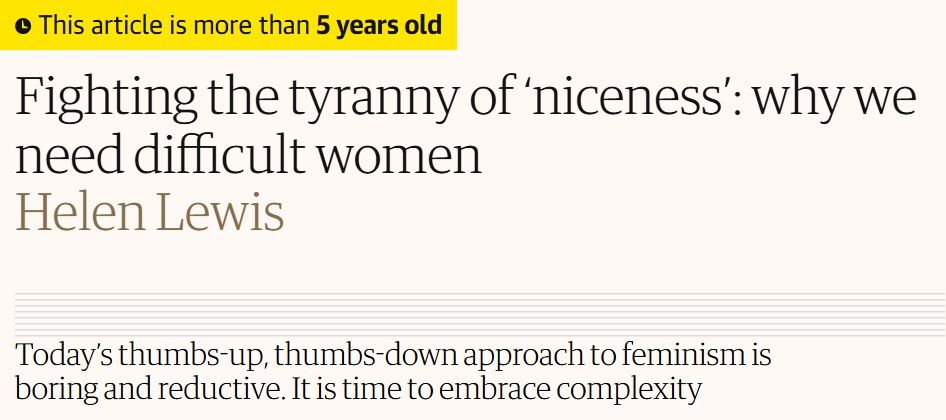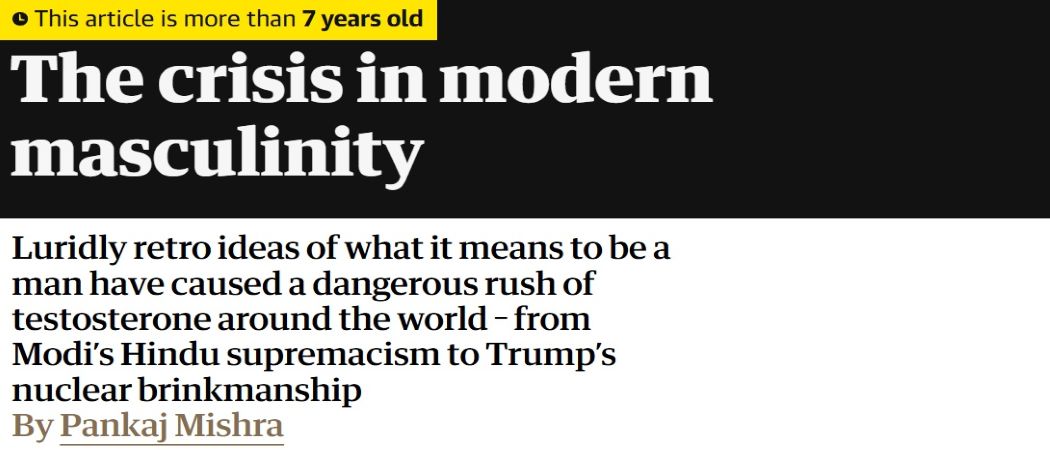Fighting the Tyranny of 'Niceness': Why We Need Difficult Women

This article critiques the expectations of 'perfection' and 'likability' in contemporary feminism, calling for recognition of the complexity and contradictions within feminism, and embracing those 'difficult women' who are nonconformist, hard to categorize, but drive change.
Related Topics
Helen Lewis argues in this article that feminism must accommodate contradictions and complexity, refusing to reduce the movement to a binary logic of “like or dislike.” She advocates for embracing those imperfect, hard-to-categorize, even controversial “difficult women,” because it is precisely these individuals who drive social change.
Core Arguments and Critical Dimensions
“Difficult” Means Complex: Lewis points out that historically, feminists have often been controversial, their views may have been untimely, but precisely because of this they were able to challenge the existing order. She criticizes the over-idealization of “role models” in contemporary feminism, believing this obscures the political nature and struggle of the movement.
Against the “Tyranny of Niceness”: Society’s expectations of women are to be gentle, compliant, and uncontroversial. Lewis emphasizes that this “culture of likability” suppresses women’s anger and agency, making feminism harmless and powerless.
Rejecting Simplification and Cancel Culture: The article critiques the tendency of “cancel culture” to purge within feminism, believing that cutting down complex figures wholesale weakens the historical depth and strategic diversity of the movement.
The Challenges and Rifts of the Fourth Wave: Lewis analyzes the rise and predicament of fourth-wave feminism, pointing out that social media has brought both energy and division, with conceptual conflicts between younger generations and their predecessors, especially regarding gender fluidity and political strategies.
From Anger to Action: She calls for transforming anger into political force to drive structural change, rather than remaining in emotional expression or symbolic protest.
The Intersection of History and Reality
Lewis cites multiple historical figures from Marie Stopes to Jayaben Desai, emphasizing that the “flaws” and “controversies” of feminists are part of their political life. She believes that true feminist history should not be a gallery of heroes, but a collective memory full of struggle, failure, and complexity.
This article was summarized and written by Copilot based on The Guardian article “Fighting the tyranny of ‘niceness’: why we need difficult women.”
Related Articles

The Crisis in Modern Masculinity
This article traces the historical evolution of modern masculinity, revealing the politicization and pathologization of the 'strong man' fantasy on a global scale, and critiques how patriarchy shapes oppressive roles for both men and women.

反对‘温顺暴政’:我们为何需要棘手的女性
本文批判了当代女性主义中对‘完美’与‘可爱’的期待,呼吁正视女性主义内部的复杂性与矛盾,接纳那些不合群、难以归类但推动变革的‘棘手女性’。

现代男性气质的危机
本文追溯了现代男性气质的历史演变,揭示了全球范围内对‘强壮男性’幻想的政治化与病态化表现,并批判了父权制如何塑造了男性与女性的压迫性角色。
Support Our Work
If this content has been helpful to you, please consider supporting us to continue curating quality feminist resources
☕ Buy me a coffee讨论与评论
分享您对这篇文章的看法和感受
加入讨论
分享您对这篇文章的看法和感受
加载评论中...